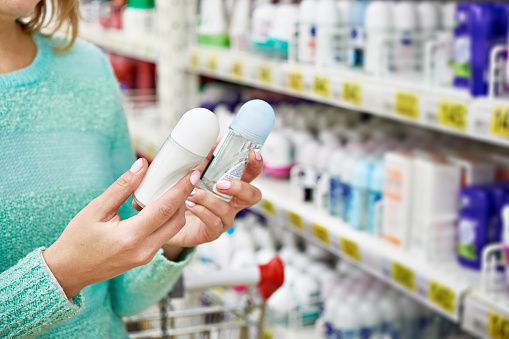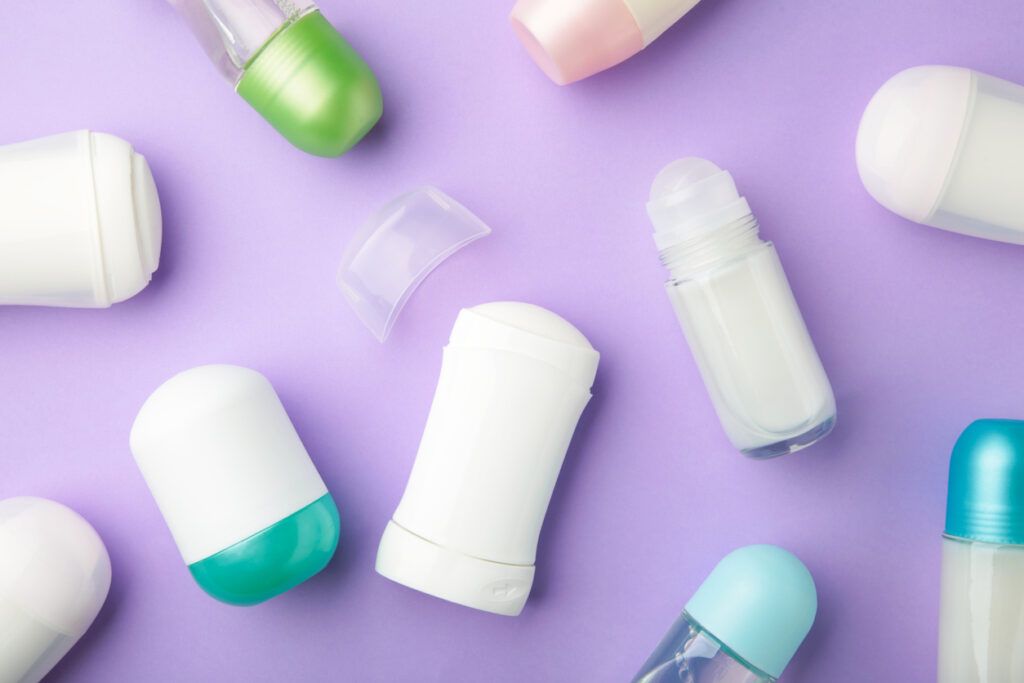DISCLOSURE: This article may contain affiliate links, meaning we get commission if you decide to make a purchase through the links, at no cost to you. Please read the disclosure for more information.
Aluminum
There are many schools of thought floating around that exposure to aluminum is bad for us. Some things on the internet state that aluminum exposure can cause cancer or Alzheimer’s. A lot of products tout that they are safer due to not containing aluminum.
So what is aluminum?
Aluminum is a metal. It is the 3rd most abundant metal on earth and the number one metal found in the earth’s crust. Requiring less than 95% of energy from its initial production, it is one of the most recycled metals in the world. We are exposed to it everywhere-sand, air and water. This is in addition to what we make out of it to use. Most of the aluminum that enters our body, wether from eating or inhaling, never enters the bloodstream.
If it does enter the blood stream it is filtered out of our body by our kidneys. So persons with kidney disease could possibly accumulate aluminum, as well as many other substances that don’t usually harm us, in their bloodstream. This is because their filter—the kidney— is not working properly.
Aluminum is also used in a wide variety of items surrounding us every day. These include:
- Cooking utensils such as pots and pans
- Furniture such as tables and chairs
- Hygiene products such as deodorant
- Packaging such as foil
- Medications such as antacids

Is the aluminum I swallow a problem?
The average US adult swallows about 8 milligrams of aluminum a day just from food alone. Food cooked in aluminum pans that are not anodized has been shown to contain aluminum. This is especially so for acidic foods such as tomatoes or vinegar. They tend to pull the aluminum out of the pan. The CDC states that this amount is minimal. The FDA says the amounts of aluminum found in foods are considered safe for consumption. A lot of cookware is actually anodized aluminum, which is a hardening process, and it doesn’t allow the aluminum to get into our foods. So simply making sure your cookware is anodized should alleviate any worries of aluminum exposure.
On the same note, we purposefully eat aluminum in antacids. Studies have not shown a correlation between high antacid intake and an increased risk of Alzheimer’s Disease.
The only possible concern would be in kidney disease. If you have kidney disease talk to your doctor about whether you should avoid antacids, coated aspirin or other oral intakes of aluminum.
Is aluminum in my deodorant?
Deodorant and antiperspirant are two different things. Your deodorant is often actually a mix of both. Deodorant attempts to mask the smell of body odor, while antiperspirant works by decreasing sweat production. Most body odor is caused by sweat mixing with the bacteria on your skin. If we get rid of the sweat then we can get rid of the odor. It is the antiperspirant that contains aluminum. The aluminum works by plugging your pores to help prevent the sweat from coming out.

Breast cancer tends to be increased in the upper outer quadrant near where we are placing our deodorants/antiperspirant. So this has sometimes been another worry of aluminum as a cause of cancer. But dozens of studies and reviews in 2008, 2014 and again in 2021, showed no correlation between aluminum exposure and breast cancer.
This was also correlated with multiple findings from French and European researchers. In addition, studies have shown we do not absorb much aluminum through our skin. So the aluminum in products applied to our bodies should not be of concern.
Will aluminum harm me?
A meta-analysis—which is basically a large review of multiple verified studies—in 2015 did claim that chronic aluminum exposure increased a person’s risk of Alzheimer’s disease. This research project had a total of over 10,000 individuals that were studied. This particular analysis has been questioned and found to not be valid for a multitude of reasons.
These are difficult studies to do as we are all so very exposed to aluminum in our environment. So there may be a lot of factors contributing to conflicting results between studies. Such as in the same year, another meta-analysis failed to show a correlation between chronic occupational aluminum exposure with an increased risk of Alzheimer’s.
Further, a review of studies with over 6000 participants also failed to show a correlation between high antacid (high source of aluminum) intake and an increased risk of Alzheimer’s Disease. And as mentioned above, multiple studies across the world have also shown no correlation between breast cancer and aluminum hygiene products.
While aluminum has not been shown to cause cancer in animal studies, the Department of Health and Human Services in the US has not conducted studies concerning aluminum and cancer in humans. The FDA feels that aluminum is safe in foods and medicines. The Environmental Protection Agency only regulates aluminum in water due to taste, color and smell and not for health reasons. OSHA, the Occupational Health and Safety Administration in the US, appears to be the only body regulating aluminum due to health reasons. They regulate the amount of aluminum allowed in the air in the working environment.
What should I do about aluminum?
The facts appear to show that aluminum is safe in our current environment and uses. So, in general, there is nothing you need to do about aluminum, except know that everywhere you step or breathe you are probably exposed to it! If you feel concerned about it in products you can simply use a deodorant without antiperspirant. You can also make sure your cookware is either not aluminum or is made of anodized aluminum.
However, if you have kidney disease, it is definitely advisable to discuss this with your doctor, as your kidneys may not be able to protect you against aluminum accumulation in your body if they are not working properly.
At the end of the day, you cannot completely avoid aluminum. Further, the studies do not show a need to avoid this very abundant and important metal.
But it is your body and your choice what you do with it!
Aluminum Facts 22 February 22, NRCAN website, Government of Canada, accessed July 2022
Is aluminum cookware safe?, Cooksillustrated website, accessed July 2022
Occupational Exposure to Aluminum and Alzheimer Disease: A Meta-Analysis August 2015, Pubmed website, National Institute of Health, accessed July 2022
Agency for Toxic Substance and Disease Registry/Toxfacts for Aluminum 12 March 2015, CDC website, US government, accessed July 2022
Chronic exposure to aluminum and risk of Alzheimer’s disease: A meta-analysis 27 November 2015, PubMed website, National Institute of Health, accessed July 2022
Brief Report: Meta-Analysis of Antacid Use and Alzheimer’s disease: Implications for the Aluminum Hypothesis 26 September 2015, PubMed website, National Institute of Health/US government, accessed July 2022
The relationship between use of aluminum containing anti-perspirant and hair color with breast cancer 30 January 2021, PubMed website, National Institute of Health, accessed July 2022
